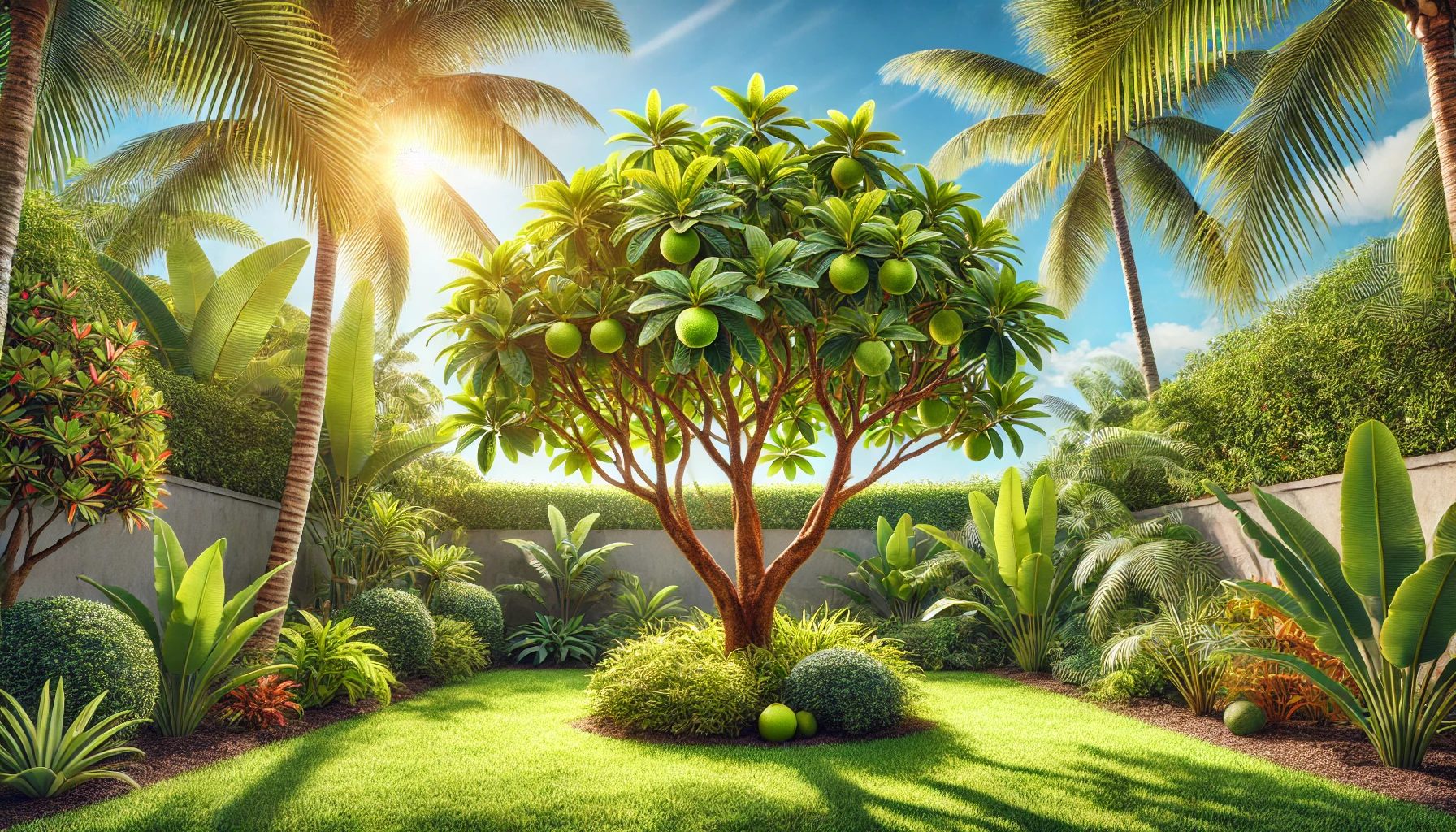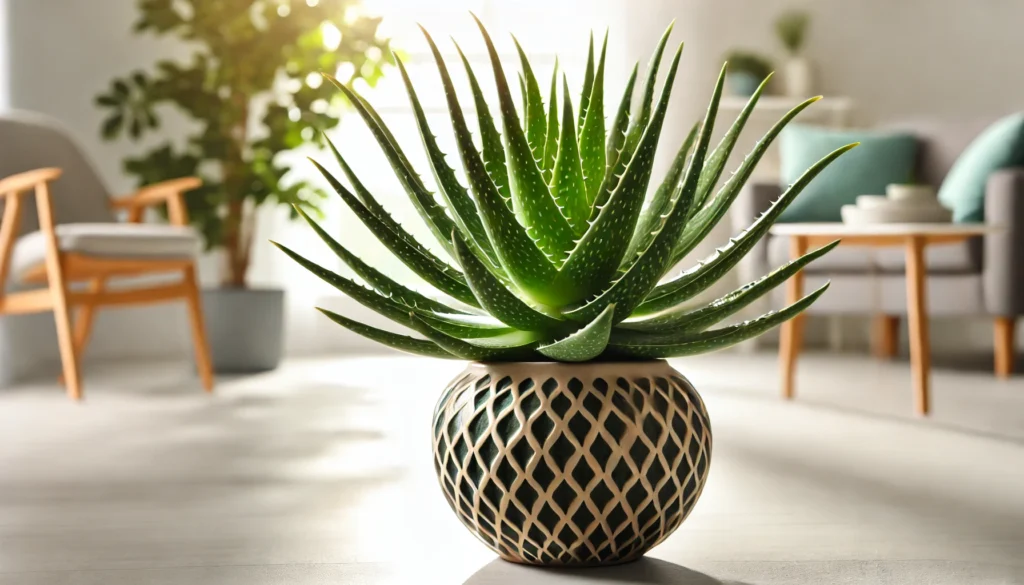
The Guava plant, known scientifically as Psidium guajava, is a tropical fruit tree cherished for its sweet, aromatic fruits and lush green foliage. This perennial plant can grow up to 20 feet (6 meters) tall, making it a versatile addition to both gardens and large containers. Guava trees are well-suited to warm climates and can produce an abundance of fruit when provided with the right care.
A Brief History and Ideal Growing Conditions
Guava is native to Central America and Mexico but has spread to tropical and subtropical regions worldwide. It has been cultivated for centuries due to its delicious fruit and medicinal properties. Guava thrives in warm, sunny climates and requires a temperature range of 70°F to 85°F (21°C to 29°C) for optimal growth. The plant prefers well-draining soil and can tolerate both drought and periods of heavy rain, making it a resilient choice for tropical gardens.
Is Guava Toxic to Pets?
Guava is generally considered non-toxic to pets, making it a safe addition to gardens and homes with animals. The fruit, in particular, is safe for dogs and cats in moderation. However, as with any plant, it’s always a good idea to monitor pets when introducing new plants to your home.
Safe Alternatives for Pet Owners
While Guava is safe for pets, other pet-safe fruit trees include Banana (Musa spp.) and Blueberry (Vaccinium spp.). These plants also provide delicious fruits and can be safely grown around pets.
Best Practices for Caring for Your Guava Plant
Caring for a Guava plant involves providing the right balance of water, light, and nutrients to ensure healthy growth and fruit production.
Watering and Humidity
Guava plants require regular watering, especially during dry periods. Water deeply once or twice a week, allowing the soil to dry out slightly between waterings. In regions with low humidity, misting the leaves or using a humidity tray can help maintain adequate moisture levels. Guava plants are fairly drought-tolerant, but consistent watering during fruiting is essential for the best yield.
Soil, Light, and Temperature
Guava thrives in well-draining, slightly acidic to neutral soil. A sandy loam soil with good organic content works best. Position your Guava plant in a location where it can receive full sunlight for at least 6 hours a day. While Guava can tolerate some shade, full sun promotes better fruiting. Keep the plant in a temperature range of 70°F to 85°F (21°C to 29°C). Guava plants are not frost-tolerant, so if you live in a cooler climate, consider growing it in a container that can be brought indoors during cold weather.
Common Problems and How to Solve Them
Guava plants are relatively hardy, but they can face a few common issues:
- Pests: Common pests include fruit flies, aphids, and scale insects. Regularly inspect your plant and use insecticidal soap or neem oil to manage infestations.
- Root Rot: Overwatering can lead to root rot, so ensure the soil is well-draining and water only when necessary.
- Leaf Yellowing: This can be a sign of nutrient deficiency, often iron or magnesium. A balanced fertilizer or soil amendment can help restore the plant’s health.
Invasive Potential and Safe Alternatives
In some regions, Guava can become invasive, particularly in tropical climates where it grows rapidly. If Guava is invasive in your area, consider planting native fruit trees like Pawpaw (Asimina triloba) or Loquat (Eriobotrya japonica), which are less likely to disrupt local ecosystems.
Propagation and the Benefits of Growing Guava
Guava can be propagated through seeds, cuttings, or air layering. Growing Guava from seed is straightforward, but cuttings or air layering are faster methods for producing fruiting plants. The benefits of growing Guava include a steady supply of fresh, nutritious fruit and the plant’s ability to thrive in various conditions, making it a rewarding addition to your garden.
Final Thoughts
Guava is a delightful and versatile plant that can bring a touch of the tropics to your garden or home. Its sweet fruits, combined with its relatively easy care, make it an excellent choice for those looking to grow their own fruit. Just be sure to provide it with plenty of sunlight and water, and you’ll enjoy the bounty of your Guava plant for years to come.
Stay connected with the world of plants! Subscribe to Phylofy for expert gardening tips, DIY projects, and eco-friendly inspiration. Join our community and nurture your love for nature. Don’t miss exclusive content and updates. Subscribe now!



